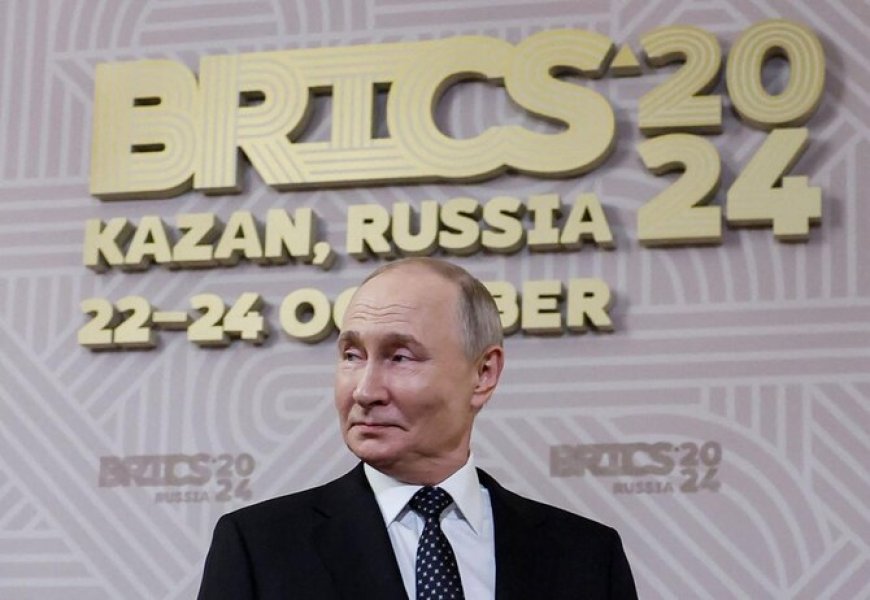Turkiye's Strategic Pivot: Erdogan’s BRICS Ambition Highlights Desire for Autonomy
In a bold move that underscores Turkiye’s evolving geopolitical strategy, President Recep Tayyip Erdogan attended the BRICS summit in Kazan at the invitation of Russian President Vladimir Putin.

In a bold move that underscores Turkiye’s evolving geopolitical strategy, President Recep Tayyip Erdogan attended the BRICS summit in Kazan at the invitation of Russian President Vladimir Putin. Erdogan’s participation, amid growing tensions between BRICS nations and the West, signals Turkiye’s intent to diversify its global alliances and carve out a more independent role in international affairs. The decision to pursue BRICS membership, if successful, would mark the first time a NATO member has joined the bloc, a significant shift for a country traditionally seen as part of the western security umbrella.
While some may interpret Turkiye’s BRICS bid as a pivot away from its long-standing ties with NATO and the West, experts argue the motivation behind the move is more nuanced. At its core, Turkiye’s outreach to BRICS reflects its quest for "strategic autonomy" — a term that encapsulates its desire to operate independently on the global stage while maintaining essential alliances. Sinan Ulgen, a researcher at Carnegie Europe, points out that the initiative is driven not only by geopolitical considerations but also economic ones. BRICS nations represent nearly half the world’s population and a third of global GDP, presenting significant opportunities for economic cooperation without the binding commitments associated with institutions like the European Union.
For Turkiye, BRICS offers an appealing alternative to the EU, where its membership bid has stalled since 1999. Erdogan has expressed frustration with the EU’s reluctance to grant full membership, noting that those who caution against joining BRICS are the same voices that have kept Turkiye waiting at Europe’s door. The appeal of BRICS lies in its flexibility; it allows members to engage in economic partnerships without the bureaucratic and regulatory obligations imposed by the EU. This economic pragmatism fits within Turkiye’s broader strategy of diversifying its trade and political relationships, especially in a world where western influence appears to be waning.
Indeed, many in Ankara see the shifting global order as an opportunity to reposition Turkiye as a key player in a multipolar world. Soli Ozel, an international relations professor at Kadir Has University, argues that Turkiye is anticipating a weakening of western hegemony, particularly that of the United States, and is looking to exploit this decline to expand its influence. Erdogan’s outreach to non-Western powers is part of a calculated effort to increase Turkiye’s geopolitical leverage while ensuring it remains an indispensable player in both western and non-western spheres.
This balancing act is not without risks, but it is also emblematic of the broader global realignment taking place. Nations like India, Brazil, and South Africa — all BRICS members — are likewise seeking to navigate a world where the traditional dominance of western powers is no longer guaranteed. Turkiye, with its strategic location at the crossroads of Europe, the Middle East, and Asia, is uniquely positioned to benefit from this shift, provided it can maintain its delicate balancing act between the East and West.
However, despite Turkiye’s outreach to BRICS, it is unlikely to sever its ties with NATO. Analysts like Gokul Sahni from Singapore emphasize that joining BRICS poses no immediate security risks for Turkiye, as the organization is primarily an economic and political platform rather than a military alliance. Turkiye’s membership in NATO remains vital to its national security, particularly given its proximity to volatile regions like Syria and Iraq. As Ozel points out, Turkiye’s economy is still deeply intertwined with Europe, and it remains a part of the "security-conscious West."













































